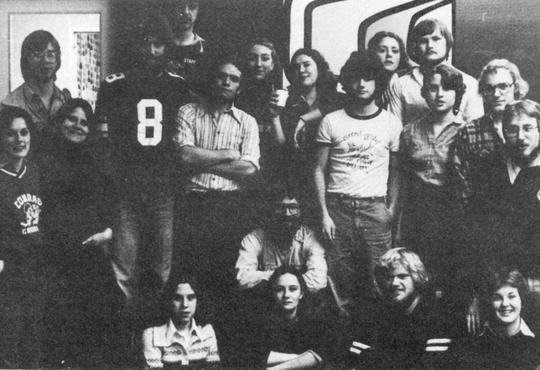Parents of prospective Peace and Conflict Studies students often ask, “What kind of job will my child get after graduation?” Career paths coming out of a liberal arts-based program are not prescribed, but an undergraduate or graduate PACS degree equips students with highly sought after skills in today’s job market. This kind of education leaves the door open to a multitude of fields, some that are just beginning to emerge; fields that will require adaptable minds, critical thinking, strong interpersonal skills, and the ability to thrive in challenging environments.
PACS is unique, as it taps into students’ individual vocations and nurtures their social entrepreneurial spirit that will lead them to find their calling. Though we may not recognize it, peace is foundational to all disciplines and careers. Renowned academic and anthropologist William Ury outlines ten roles that individuals fill in society to create a stronger, healthier, peaceful climate: the Provider, Teacher, Bridge-builder, Mediator, Arbiter, Equalizer, Healer, Witness, Referee, and Peacekeeper. Looking back at our recent graduates, PACS and MPACS alumni have not only filled these roles but have flourished and made unique contributions within them.
The Provider sees an injustice and seeks to fill this void in society, like Elle Crevits (PACS ’15). Inspired by a final project in a PACS class, Elle developed Food Not Waste, an initiative aimed at reducing food waste from small businesses by re-distributing it to emergency food services. She further developed this initative in Grebel’s Epp Peace Incubator.
Teachers teach skills to others. Rod Friesen (MPACS ’14) teaches at Durham College on the topic of Human Resources. He focuses on human resources management as an integrated strategy for employee well-being, through work-life balance and supporting mental wellness.
Bridge-builders seek to close the gap between cultural groups, religions, and even across socioeconomic groups. Taking a development approach, James Janzen (MPACS ’15) works in Fort Severn, Ontario as a building project manager, focused on developing schools and community centres in remote First Nations communities.
Mediators like Darren Kropf (MPACS ’15) engage all stakeholders to discuss and make decisions on possible points of contention. Darren works as a Neighbourhood Strategic Engagement Associate for the City of Kitchener and facilitates dialogue within communities to help develop plans for neighbourhood engagement.
Upholding just laws and roles for a fair society is the mission of an Arbiter. Eric Boynton (PACS ’12) fills this role as a Police Officer in Waterloo Region.
The Equalizer seeks to balance the power playing field so all members of society have equal opportunity. Kaylee Perez (MPACS ’15) works with Mennonite Central Committee as a Refugee Sponsorship Associate, assisting newcomers as they navigate the Canadian immigration system and resettlement.
Healers like Jenna Goodhand (PACS ’10) listen, acknowledge, and provide guidance to those struggling. Jenna helps others achieve their goals through her business as a life coach. She helps individuals find clarity on their next career or personal path and helps them develop healthy habits.
As a Witness, Arielle Campion-Ross (PACS ’11) believes in telling the truth and standing alongside those in harm’s way. She fills this role as the Ontario Field Representative and Member Engagement Specialist at an independent Canadian labour union.
The Referee sets policies and holds others accountable in order to protect vulnerable persons within society. Catherine You (PACS ’12) does this through her job at Firetail in the United Kingdom, a consulting firm for socially conscious organizations. Catherine specializes in monitoring and evaluating agricultural development programs.
Finally, the Peacekeeper works with persons facing a direct threat against their well-being and seeks to protect them. Nadine Hiemstra (PACS ’12) and Cass Bangay (PACS ’12) worked in Colombia with Christian Peacemaker Teams, using their presence to stand alongside vulnerable communities and act as nonviolent peacekeepers to decrease the threat of violence.
Our PACS and MPACS alumni continue to exceed our expectations within the job market and in their scope of impact. When parents ask what their child’s job will be after completing a PACS or MPACS degree, we no longer put parameters around it. We simply look to our alumni as shining examples of the flexibility and impact of a PACS or MPACS degree, and leave students with the power to dream big.






